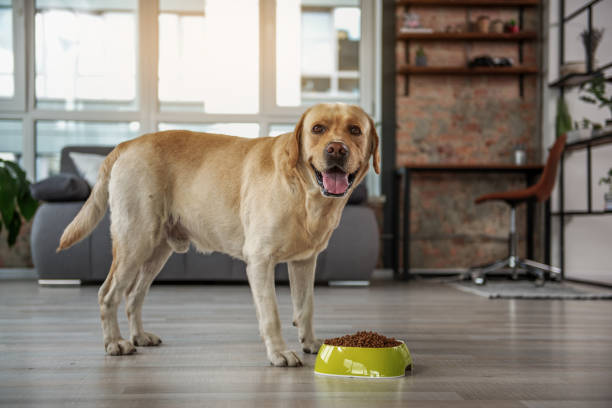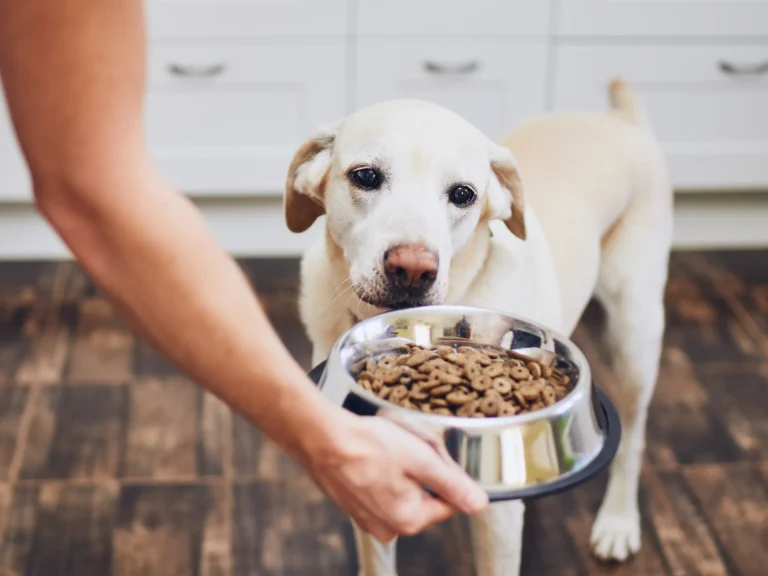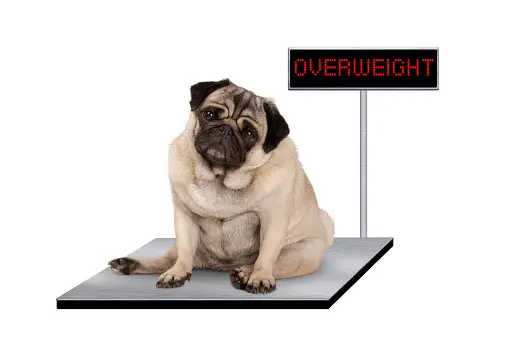Understanding Dog Digestive System
Anatomy of a Dog’s Digestive System
The digestive system of a dog is a complex network of organs that work together to break down food and absorb nutrients. Understanding the anatomy of a dog’s digestive system can help pet owners better care for their dog’s digestive health.
The main organs of a dog’s digestive system include:
- Mouth: The digestion process begins in the mouth where food is chewed and mixed with saliva.
- Esophagus: The esophagus is a tube that connects the mouth to the stomach and transports food to the stomach through muscle contractions.
- Stomach: The stomach is a muscular organ that stores and breaks down food further using strong acids and enzymes.
- Small Intestine: The small intestine is where most of the nutrients from food are absorbed into the bloodstream.
- Large Intestine: The large intestine absorbs water and electrolytes from the remaining undigested food, forming solid waste (feces).
- Rectum: The rectum stores and expels feces from the body through the anus.
Functions of Each Digestive Organ
Each organ in a dog’s digestive system has a specific function that contributes to the overall digestive process.
- Mouth: The mouth is responsible for chewing and breaking down food into smaller pieces, increasing its surface area for better digestion.
- Esophagus: The esophagus transports food from the mouth to the stomach through a series of muscular contractions called peristalsis.
- Stomach: The stomach secretes digestive juices, including acids and enzymes, that break down food into a semi-liquid form called chyme.
- Small Intestine: The small intestine is where most of the digestion and absorption of nutrients takes place. It has specialized structures called villi that increase the surface area for nutrient absorption.
- Large Intestine: The large intestine absorbs water and electrolytes from the remaining undigested food, forming solid waste.
- Rectum: The rectum stores feces until it is expelled from the body through the anus.
Common Digestive Issues in Dogs
Dogs can experience various digestive issues that may affect their overall health and well-being. Some common digestive issues in dogs include:
- Upset Stomach: Dogs may experience occasional upset stomachs due to dietary changes, eating something inappropriate, or food intolerance. Symptoms may include vomiting, diarrhea, or loss of appetite.
- Gastritis: Gastritis is the inflammation of the stomach lining. It can be caused by infections, allergies, or ingestion of irritants. Symptoms may include vomiting, loss of appetite, and abdominal pain.
- Diarrhea: Diarrhea in dogs can be caused by various factors, including dietary indiscretion, bacterial or viral infections, parasites, or certain medications. It is characterized by loose, watery stools.
- Constipation: Constipation occurs when a dog has difficulty passing stool. It can be caused by inadequate fiber intake, dehydration, or underlying medical conditions. Symptoms may include straining, dry stools, and reduced appetite.
- Pancreatitis: Pancreatitis is the inflammation of the pancreas and can be triggered by a high-fat diet, obesity, or certain medications. Symptoms may include vomiting, abdominal pain, and loss of appetite.
Understanding common digestive issues in dogs can help pet owners identify potential problems and seek appropriate veterinary care. It is important to consult a veterinarian for proper diagnosis and treatment if a dog is experiencing persistent or severe digestive issues.
Maintaining a Healthy Canine Digestive System
Importance of Proper Nutrition
Proper nutrition plays a critical role in maintaining a healthy digestive system for your canine companion. Just like humans, dogs require a balanced diet that provides them with all the essential nutrients, vitamins, and minerals they need for optimal health. A diet lacking in essential nutrients can lead to digestive issues such as constipation, diarrhea, and upset stomach.
To ensure your dog’s digestive health, it is important to choose high-quality dog food that is specifically formulated to meet their nutritional needs. Look for dog food that contains real meat as the primary ingredient and is free from artificial additives, fillers, and by-products. Additionally, consult with your veterinarian to determine the appropriate portion sizes and feeding frequency for your dog’s age, breed, and activity level.
Feeding Guidelines for a Healthy Digestive System
Establishing a proper feeding routine is crucial for maintaining a healthy digestive system in dogs. Here are some guidelines to follow:
- Consistency: Stick to a consistent feeding schedule, offering meals at the same time each day. This helps regulate your dog’s digestion and prevents overeating.
- Portion Control: Avoid overfeeding your dog as it can lead to obesity, which can put a strain on their digestive system. Follow the feeding guidelines provided on the dog food packaging or consult with your veterinarian for personalized portion recommendations.
- Avoid Table Scraps: While it may be tempting to share your food with your furry friend, it is important to avoid giving them table scraps. Human food can be high in fat, salt, and spices, which can upset your dog’s stomach and cause digestive issues.
- Slow Feeding: Consider using slow feeder bowls or puzzle toys to slow down your dog’s eating pace. Eating too quickly can lead to indigestion and stomach discomfort.
Hydration and Digestive Health
Proper hydration is essential for maintaining a healthy digestive system in dogs. Water helps in the digestion and absorption of nutrients, as well as the elimination of waste. Ensure your dog always has access to fresh, clean water throughout the day.
In addition to water, you can also incorporate moisture-rich foods into your dog’s diet, such as canned dog food or adding water to dry kibble. This helps prevent dehydration and promotes a healthy digestive system.
Remember to monitor your dog’s water intake and encourage them to drink regularly, especially during hot weather or after physical activity.
By following these guidelines and providing your dog with a nutritious diet and ample hydration, you can help ensure a happy and healthy digestive system for your beloved canine companion.
Identifying Digestive Health Problems
Signs and Symptoms of Digestive Issues
Digestive health problems in dogs can manifest in various signs and symptoms. It is essential for pet owners to be aware of these indicators to identify any potential issues and seek appropriate care. Some common signs of digestive problems in dogs include:
- Vomiting and Diarrhea: Frequent or persistent vomiting and diarrhea can be indicative of digestive distress. If these symptoms occur frequently or are accompanied by other concerning signs, it is important to consult a veterinarian.
- Loss of Appetite: A decrease in appetite or refusal to eat can be a sign of digestive issues. If your dog consistently shows disinterest in food or experiences weight loss, it may be a cause for concern.
- Abdominal Discomfort: Dogs with digestive problems may exhibit signs of abdominal discomfort such as bloating, excessive gas, or pain. These symptoms can be observed through restlessness, pacing, or an arched back.
- Changes in Stool: Pay attention to any changes in your dog’s stool. This includes abnormal consistency (e.g., watery, loose, or hard), unusual color, or the presence of blood. Such changes can indicate underlying digestive disorders.
Common Digestive Disorders in Dogs
Dogs can experience a range of digestive disorders that may affect their overall health and well-being. Some of the most common digestive disorders seen in dogs include:
- Gastroenteritis: This is an inflammation of the stomach and intestines, often caused by dietary indiscretions or bacterial infections. Symptoms include vomiting, diarrhea, abdominal pain, and dehydration.
- Pancreatitis: Pancreatitis is the inflammation of the pancreas, which can lead to digestive enzyme imbalances. Dogs with pancreatitis may exhibit symptoms such as vomiting, abdominal pain, loss of appetite, and lethargy.
- Colitis: Colitis refers to inflammation of the colon and is often associated with diarrhea, mucus or blood in the stool, and increased frequency of bowel movements.
- Gastric Dilatation-Volvulus (GDV): Also known as bloat, GDV is a life-threatening condition that occurs when a dog’s stomach fills with gas and twists. Symptoms include a distended abdomen, unproductive attempts to vomit, restlessness, and rapid breathing.
When to Consult a Veterinarian
While minor digestive issues can often be resolved with dietary adjustments or home remedies, it is crucial to consult a veterinarian in certain situations. You should seek professional advice if:
- Symptoms Persist or Worsen: If your dog’s digestive symptoms persist for more than 24 hours or worsen despite home care, it is important to consult a veterinarian. Prolonged digestive issues may indicate an underlying condition that requires medical attention.
- Severe Symptoms: If your dog shows severe symptoms such as persistent vomiting, bloody diarrhea, extreme lethargy, or signs of pain, immediate veterinary care is essential.
- Dehydration: Dogs with digestive problems can quickly become dehydrated. Signs of dehydration include dry gums, sunken eyes, reduced skin elasticity, and lethargy. Urgent veterinary attention is necessary to address dehydration.
- Preventive Measures: If your dog has a history of digestive disorders or is prone to them, it is advisable to consult a veterinarian for preventive measures and regular check-ups.
Remember, as a responsible pet owner, it is crucial to monitor your dog’s digestive health and seek prompt veterinary care when necessary. By staying vigilant and seeking professional advice, you can ensure your dog’s stomach remains happy and healthy.
Natural Remedies for Digestive Issues
Dietary Modifications for Digestive Health
When it comes to maintaining your dog’s digestive health, dietary modifications play a crucial role. By making a few adjustments to your dog’s diet, you can alleviate digestive issues and ensure a happy stomach. Here are some dietary modifications you can consider:
- High-Quality, Digestible Protein: Opt for high-quality protein sources like lean meats or fish that are easily digestible for your canine companion. Avoid low-quality fillers or by-products that can strain your dog’s digestive system.
- Limited Ingredient Diet: If your dog has a sensitive stomach, switching to a limited ingredient diet can be beneficial. These diets typically contain a reduced number of ingredients, making it easier to identify and avoid potential allergens that may trigger digestive issues.
- Fiber-Rich Foods: Including fiber in your dog’s diet can promote healthy digestion. Foods like pumpkin, sweet potatoes, and green leafy vegetables are excellent sources of dietary fiber. However, it’s essential to introduce fiber gradually to prevent any sudden changes in bowel movements.
Probiotics and Digestive Health
Probiotics are beneficial bacteria that can help balance the gut flora and improve your dog’s digestive health. Consider the following points when incorporating probiotics into your dog’s routine:
- Consult Your Veterinarian: Before starting any probiotic supplements, consult your veterinarian to determine the appropriate dosage and strain of probiotics for your dog. They can guide you based on your dog’s specific digestive issues and overall health.
- Choose Quality Probiotic Supplements: Look for probiotic supplements specifically formulated for dogs. Ensure that the product contains a variety of beneficial bacterial strains such as Lactobacillus and Bifidobacterium, as these can support digestion and immune function.
- Introduce Gradually: When introducing probiotics, start with a small dosage and gradually increase it over time. This allows your dog’s digestive system to adjust to the new bacteria and reduces the risk of any adverse reactions.
Herbal Supplements for Digestive Support
In addition to dietary modifications and probiotics, herbal supplements can provide natural support for your dog’s digestive system. Here are some commonly used herbs for digestive health:
- Peppermint: Peppermint can help soothe the stomach and alleviate digestive discomfort in dogs. It is available in the form of herbal teas or as an ingredient in digestive supplements formulated for dogs.
- Chamomile: Chamomile has anti-inflammatory properties and can help calm an upset stomach in dogs. It is often used in the form of herbal teas or as an ingredient in digestive supplements.
- Ginger: Ginger is known for its anti-nausea properties and can be helpful in relieving digestive issues such as vomiting or diarrhea. You can find ginger supplements specifically designed for dogs or use fresh ginger in small amounts as directed by your veterinarian.
Remember, while herbal supplements can be beneficial, it’s crucial to consult with your veterinarian before introducing any new herbs or supplements into your dog’s routine. They can provide guidance on appropriate dosages and potential interactions with any existing medications or health conditions.
Preventive Measures for Canine Digestive Health
Regular Exercise and Digestive Function
Regular exercise plays a crucial role in maintaining a healthy digestive system for your canine companion. Dogs that engage in physical activities on a regular basis tend to have better digestion and overall gastrointestinal health. Exercise helps stimulate the muscles in the digestive tract, promoting efficient movement of food through the system and preventing issues such as constipation or diarrhea.
Incorporating daily walks, playtime, or interactive toys that encourage physical activity can greatly contribute to your dog’s digestive health. It is important to tailor the exercise routine to your dog’s age, breed, and overall health condition. Consult with your veterinarian to determine an appropriate exercise plan for your furry friend.
Stress Management for Digestive Health
Stress can have a significant impact on your dog’s digestive health. Just like humans, dogs can experience stress and anxiety, which can lead to various digestive issues such as upset stomach, vomiting, or changes in bowel movements. It is essential to create a calm and stress-free environment for your dog to maintain a healthy digestive system.
Implementing stress management techniques such as providing a safe and comfortable space, offering mental stimulation through enrichment activities, and maintaining a consistent daily routine can help alleviate stress and promote better digestion. Additionally, ensuring your dog receives adequate socialization and positive reinforcement can contribute to their overall emotional well-being, which in turn supports a healthy digestive system.
Routine Veterinary Check-ups
Regular veterinary check-ups are crucial for maintaining optimal canine digestive health. Your veterinarian can perform comprehensive examinations to detect any underlying digestive issues or potential risk factors. They can also provide valuable guidance on diet, nutrition, and preventive measures specific to your dog’s digestive needs.
During these check-ups, your veterinarian may recommend dietary adjustments, prescribe appropriate digestive supplements if necessary, and address any concerns or questions you may have regarding your dog’s digestive health. Additionally, routine vaccinations and parasite prevention treatments are essential to prevent gastrointestinal infections and related complications.
By incorporating these preventive measures into your dog’s lifestyle, you can help ensure their digestive health remains in optimal condition, promoting a happy and comfortable stomach for your furry friend. Remember to consult with your veterinarian for personalized advice and guidance tailored to your dog’s specific needs.
Maintaining canine digestive health is crucial for ensuring a happy and healthy stomach for your dog. By implementing proper dietary habits, such as feeding high-quality and easily digestible food, avoiding table scraps, and providing regular exercise, you can significantly improve your dog’s overall digestive well-being. Additionally, incorporating digestive health supplements and seeking veterinary advice when necessary can further support your dog’s digestive system. Remember, a healthy stomach leads to a happy and vibrant dog, so prioritize their digestive health for a long and fulfilling life together.







